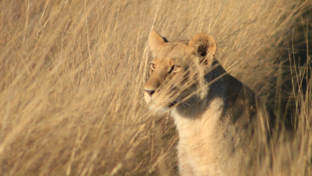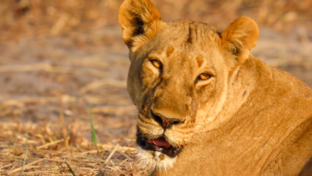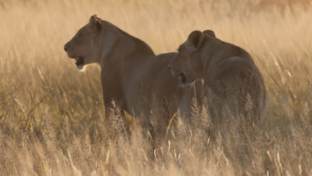Machaba Camp Wildlife Stories August 2025
August was a month of striking contrasts at Machaba Camp. Early mornings and evenings were as cool as 10 degrees Celsius, while middays were hot enough to be mistaken for summer. Sections of incredibly vibrant green vegetation were woven through the vast dry regions covered in yellow grass and fallen golden leaves. In the midst of all this, the wildlife around camp thrived as we observed them.
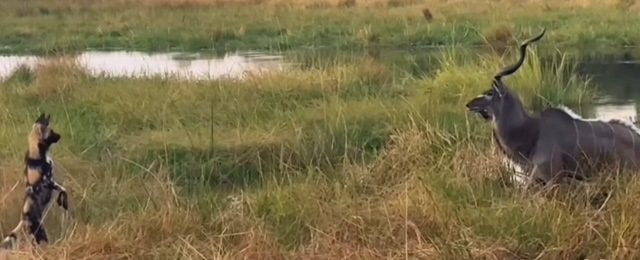
Cheetah Collective
One morning near Magotlho, we spotted a female cheetah with her four subadult cubs. They stealthily moved through the bush, clearly hunting for what their sharp noses had picked up. The mother led, teaching her cubs to keep their bodies low, movements precise and focused.
Unfortunately for the family, their hunt didn’t end with a meal, but the lessons learned will serve the cubs greatly when they strike out on their own.
Wild Wild Dogs
As the sun was rising over the mopane woodland at Magotlho, we found fresh African wild dog tracks near a riverbed. Following them with anticipation, we soon found a pack of five adults and five subadults moving swiftly through the bush.
Suddenly, the lead dogs picked up the scent of prey. The pack sped up and spread out into a well-coordinated formation, designed to trap and capture a young kudu grazing alone up ahead. Then, the dogs started sprinting towards the terrified animal.
The kudu put up a valiant fight, but was eventually captured, dragged to the ground and killed. The wild dogs immediately started feeding before any scavengers could attempt to steal their kill.
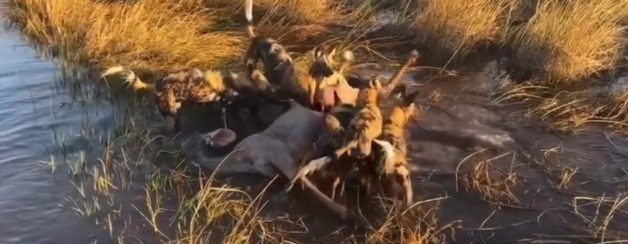
New Lions In Town
As the first light of dawn broke, the faint echo of a lion’s roar stirred nature to life. Not wanting to miss out on a potential sighting, we headed straight to where it came from. When we got there, we could not believe our eyes. Two new male lions had entered another pride’s territory.
The males had killed one of the resident pride’s cubs, roaring viciously to announce that they were here to take over. Once the pride returned, the two males were long gone. We were stunned to see that after realising a cub was killed, they started feeding on the dead carcass!
Although difficult to watch, this is not uncommon in the wild, where survival trumps sentiment.
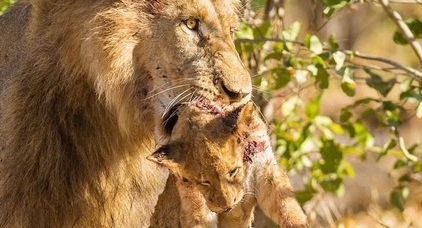
Leopard Carcass Carrying
Late one afternoon, we headed to the location of a reported leopard sighting. When we arrived, we spotted and recognised the large male who frequented the area. His ears were forward, belly close to the ground and eyes locked on a herd of grazing impala. A hunt was about to happen.
For close to 15 minutes, the leopard inched its way closer and closer with incredible patience. The impala were completely unaware of the impending danger until the leopard burst into a sprint, scattering the herd in every direction. One female impala was caught mid-leap. The leopard sank its teeth around its throat and killed it.
What followed was even more impressive. The leopard dragged its kill through the dense bush for about 30 meters to a nearby marula tree. He hoisted the impala, which easily weighed just as much as the leopard, up a tree. Occasionally, it paused to catch its breath, but after 20 minutes, the kill was fully up the tree and secure from other larger predators like lions and hyenas.
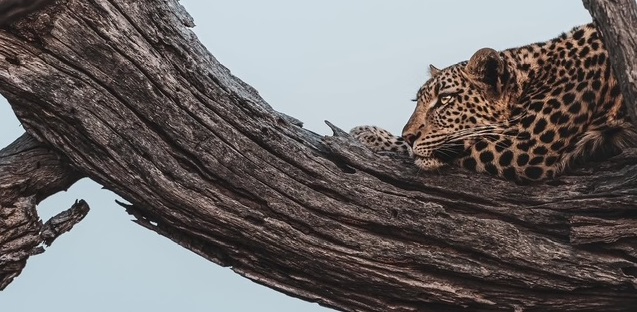
August delighted us with spectacular wildlife sightings. Watch this space for more wildlife stories from Machaba Camp.
Until next time,
Phie
Machaba Camp / Little Machaba





